Modelling the Energy Transition: the role of Railway Sector energy demand
Modelling the Energy Transition: the role of Railway Sector energy demand
Questo progetto è promosso da MOST - Centro Nazionale per la Mobilità Sostenibile, Spoke Leader SP04 – Trasporto Ferroviario. Progetto finanziato dall’Unione europea - NextGenerationEU – Piano Nazionale Resistenza e Resilienza (PNRR) - Missione 4 Componente 2 Investimento 1.4 – Progetto CN_00000023 denominato Sustainable Mobility Center CUP D43C22001180001.




Questo MOOC è finanziato dall’Unione europea - NextGenerationEU – Piano Nazionale Resistenza e Resilienza (PNRR). I punti di vista e le opinioni espresse sono tuttavia solo quelli degli autori e non riflettono necessariamente quelli dell'Unione europea o della Commissione europea. Né l'Unione europea né la Commissione europea possono essere ritenute responsabili per essi.
Course description
The MOOC aims to offer a holistic, quantitative, and multi-dimensional perspective on the ongoing energy transition. It equips participants with knowledge in energy planning and energy system analysis, then applying its principles with a focus on transportation sector's specifically the railway transportation sector in Italy. Participants will engage in modeling railway infrastructure and services, providing a foundation for quantifying energy needs.
The primary objective of the course is to bridge the gap between theoretical and practical estimates of energy demand. Hence, the introduction to demand simulation methods, allowing the participants to gain practical insights using an energy demand model RAMP representing distinctive patterns across different levels of energy services. Then, Real-life case studies are addressed through hands-on sessions using the RAMP open-source code, allowing participants to apply their knowledge in their professional activities.
Lastly, participants are introduced to principles of scenario analysis in order to explore effective decarbonization strategies. Emphasizing the importance of modeling for simulation, prediction, and energy consumption assessment, the course enables comprehensive analysis and informed decision-making under various scenarios. Ultimately, it paves the way for a sustainable future in railway services.
This MOOC was carried out within the MOST – Sustainable Mobility National Research Center and has been Funded by the Ministry of University and Research (MUR) as part of the European Union program NextGenerationEU, under the National Recovery and Resilience Plan (PNRR) - Spoke 4: Rail Transportation. Main Partner is Politecnico di Milano, other partners are La Sapienza, University of Rome and University of Naples, Federico II.
Total workload of the course: 5 hours
Intended Learning Outcomes
By actively participating in this MOOC, you will achieve different intended learning outcomes (ILOs).
Week 1 - The Italian Railway Sector
- Understand the Energy-Transport nexus
ESCO: energy market ESCO: energy - Describe the fundamentals of national energy accountings with transport sectoral details
ESCO: accounting ESCO: explain accounting records ESCO: energy sector policies
Week 2 - Real Case Study
- Explain the fundamentals of energy modelling and its governing principles
ESCO: develop energy policy ESCO: allocating and controlling physical resources - Discuss the results in terms of energy demand forecast from practical case studies
ESCO: think critically
Week 3 - Modelling the Railway Sector Energy Demand
- Use python based simulation tools for national energy demand forecasting
ESCO: working with computers ESCO: using digital tools for collaboration, content creation and problem solving - Use of the taxonomy defined at sectoral level and the concept of Archetypes for energy modelling
ESCO: perform energy simulations - Analyze national energy policies impacts and perform scenarios analysis
ESCO: think critically
Prerequisites
No prerequisite knowledge is required for this course.
Activities
Over and above consulting the content, in the form of videos and other web-based resources, you will have the opportunity to discuss course topics and to share ideas with your peers in the Forum of this MOOC. The forum of this MOOC is freely accessible and participation is not guided; you can use it to compare yourself with other participants, or to discuss course contents with them.
Assessment
Your final grade for the course will be based on the results of your answers to the assessed quizzes. You have an unlimited number of attempts at each quiz, but you must wait 15 minutes before you can try again. You will have successfully completed the course if you score a total of 60% (or higher) in each of the assessed quizzes.
The maximum score possible for each quiz is given at the beginning of the quiz. You can view your score in the quiz on your last attempt or on the 'Grades' page.
Certificate
You can achieve a certificate in the form of an Open Badge for this course, if you obtain, at least, 60% of the total score in the graded quizzes and by filling in the final survey.
Once you have completed the required tasks, you will be able to access ‘Get the Open Badge’ and start issuing the badge. Instructions on how to access the badge will be sent to your e-mail address.
The Badge does not confer any academic credit, grade or degree.
Information about fees and access to materials
The course is delivered in online mode and is available free of charge.
Course materials will remain always available to all enrolled users.
Course faculty
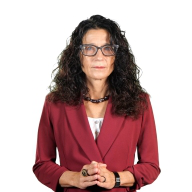
Emanuela Colombo
Emanuela Colombo has achieved both a PhD in Energy Engineering and a Nuclear Engineering MSc at Politecnico di Milano in Italy where she is currently Full Professor at the Department of Energy. At the same university, She served as Rector’s Delegate to Cooperation and Development from 2005 to 2022, now appointed as Rector’s Delegate to Science Diplomacy. In 2012 she has been named Chair holder of the UNESCO CHAIR in Energy for Sustainable Development and member of the International advisory board at the Nelson Mandela African Institute of Science and Technology in Arusha (Tanzania).
She has been appointed by the Italian Conference of the Rector (CRUI) as the representative of the national academic system within the National Council for Cooperation and Development at the Ministry of Foreign Affairs and International Cooperation (MAECI). She is also serving as the national representative in the AU-EU High level Policy Dialogue appointed by the Italian Ministry of Higher Education and Research (MUR).
She is member of the Royal Academy of Oversee Science (Belgium) since 2019. She is in the board of the Italian Higher Education with Africa Foundation (IHEA Foundation) supported by the Italian Ministry of Higher Education and Research (MUR). She has been recently nominated in the working group on Science Diplomacy (DGRTD of the EU commission).

Francesco Tonini
Francesco Tonini is Post-Doctoral Researcher at Politecnico di Milano, Department of Energy, and Co-founder of eNextGen S.r.l, Spin-off by Politecnico di Milano. His research activity focuses on bridging the gap between scientific analysis and decision makers to foster the evidence-based policy and strategy making. Within this field he collaborates with Italian and international energy companies and NGOs. As far as teaching experience, Francesco is assistant professor for the MSc course “Thermoeconomics and Energy Modelling” at Politecnico di Milano and lecturer for several specializing master course held by the Departement of Energy. He actively conducted as lecturer and project manager several capacity building and training activities financed by national and international institutions in Ethiopia, Tunisia, Kenya and Tanzania. His PhD thesis was awarded with the CeTAmb Prize for appropriate technologies for sustainable development in countries with limited resources; His PhD research activity was awarded by the Enel Foundation Fellowship; His Master Thesis was awarded with the Altero Matteoli memorial price.
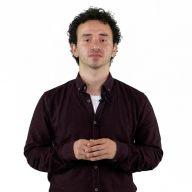
Khaled Gad
Eng. Khaled Gad (Male) is a Doctoral Researcher in the Sustainable Energy Systems Analysis and Modelling (SESAM) group within the Department of Energy at Politecnico di Milano, where he is pursuing his Ph.D. in the STEP-CHANGE program (Science, Technology, and Policy for Sustainable Change). His research centers on energy system analysis and modeling, with a primary goal of developing optimization and simulation models to evaluate the feasibility of renewable energy and low-carbon technologies as part of Italy’s energy transition. His PhD research is conducted within the framework of the National Center for Sustainable Mobility (MOST), focusing on critical areas such as renewable energy integration, modal shifting, and the strategic roles of hydrogen and biofuels in decarbonizing Italian transport infrastructure, with a particular emphasis on the railway sector. His work aims to develop evidence-based models that inform policy and contribute to practical, sustainable transport solutions for Italy and, potentially, for broader applications in global transportation systems.
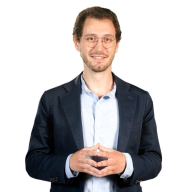
Nicholas Della Valle
Nicholas Della Valle holds a master's degree in energy engineering from the Polytechnic University of Milan. During his academic career, he have investigated topics related to decarbonization and modeling of energy systems. His thesis, carried out in collaboration with Sapienza University of Rome, focused on energy demand estimation for the rail transport sector. Nicholas currently hold the position of energy efficiency analyst and engineer at a consulting firm based in Milan.
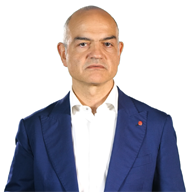
Domenico Borello
Domenico Borello is full professor at Sapienza University of Rome in the Sector of Power Systems
(Sistemi per l’Energia e l’Ambiente).
He has a Ph.D. in Energy (2000). He is working in the Dept. of Mechanical and Aerospace Engineering and operates in the sector of
energy since 1996. His actual field of interests focuses on:
Research activities:
-
Hydrogen value chain: production, storage&transport, end uses (power, mobility, hard-to- abate processes)
-
Biomass&Wastes conversion: thermochemical process intensification for production of syngas with high hydrogen content
-
Study of advanced energy conversion systems: fuel cells, electrolysers, batteries
Methodologies:
-
Experimental techniques: flow, temperature and pressure measurement and control; polarisation curves; EIS, cyclic voltammetry
-
Numerical analysis: systems modelling (matlab/Simulink); CFD
-
Hardware-in-the-loop/Real time predictions
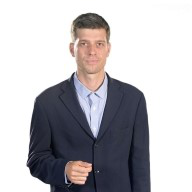
Giuliano Agati
Giuliano Agati is an Assistant Professor in the Department of Mechanical and Aerospace Engineering at Sapienza University of Rome. His research expertise encompasses a wide range of topics related to energy transition and to the numerical modeling of energy systems, from computational fluid dynamics to sustainable mobility. Throughout his career, he has delved into large number of topics related to CFD simulations, from multiphase flows in fluid machinery to multiphysics problems. In the last years, his work has focused on promoting sustainability and renewable energy solutions, with a strong focus on the mobility sector. His research includes developing and optimizing hybrid traction systems for heavy and light transportation, eventually integrating hydrogen fuel cell and battery technologies to drive the transition toward cleaner energy.

Cesare Forzano
Cesare Forzano earned his M.Sc. in Mechanical Engineering for Energy and Environment in 2016 from the University of Naples Federico II (Italy). He later obtained a Ph.D. in Sustainable Energy and Technologies in 2020 from the Free University of Bolzano (Italy), where his research focused on the optimization of energy systems, with particular emphasis on renewable energy solutions for building applications. Currently, he is an Assistant Professor at the University of Naples Federico II, where his research explores key areas such as building energy efficiency, district heating and cooling networks, polygeneration systems, and renewable energy devices. His work places special emphasis on the sustainability and energy efficiency of transportation systems, particularly within the railway sector.
Contact details
If you have any enquiries about the course or if you need technical assistance please contact pok@polimi.it. For further information, see FAQ page.